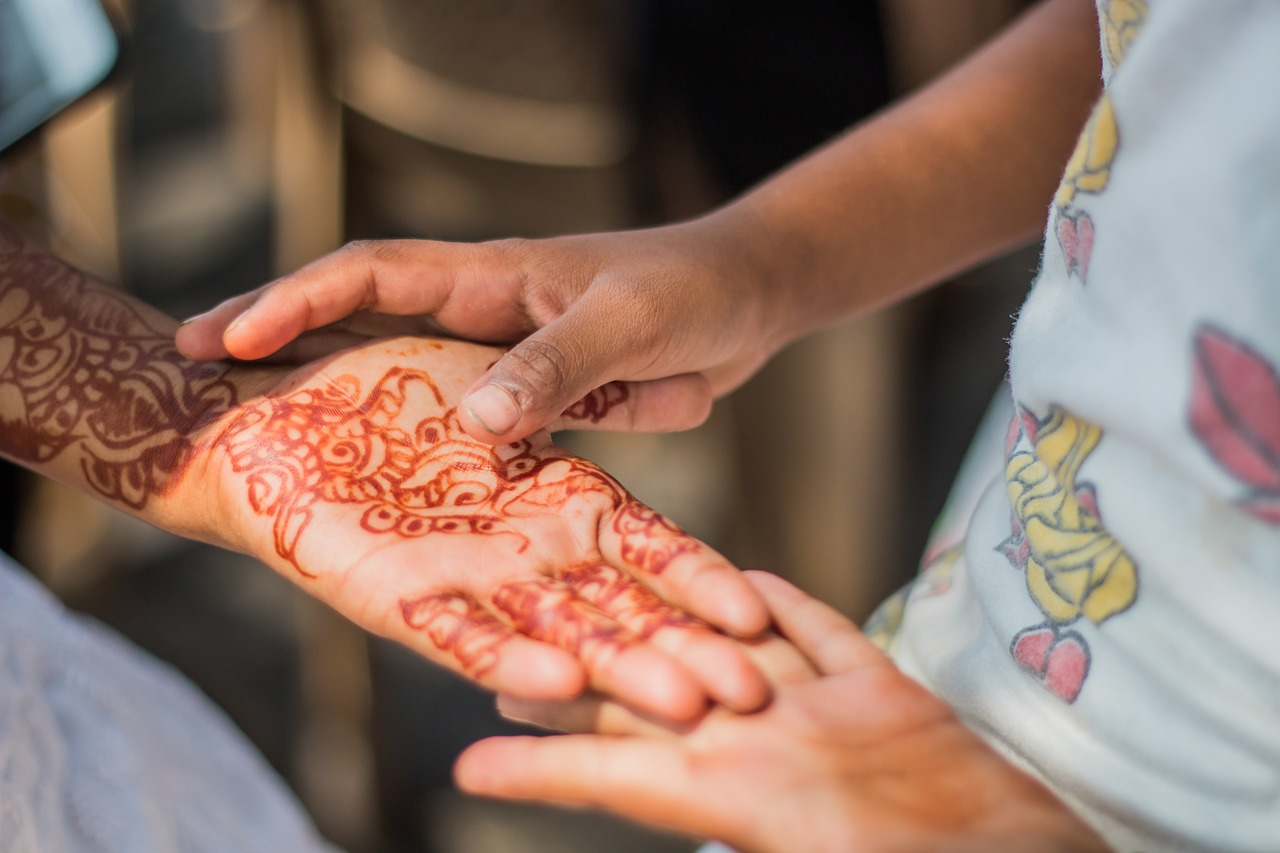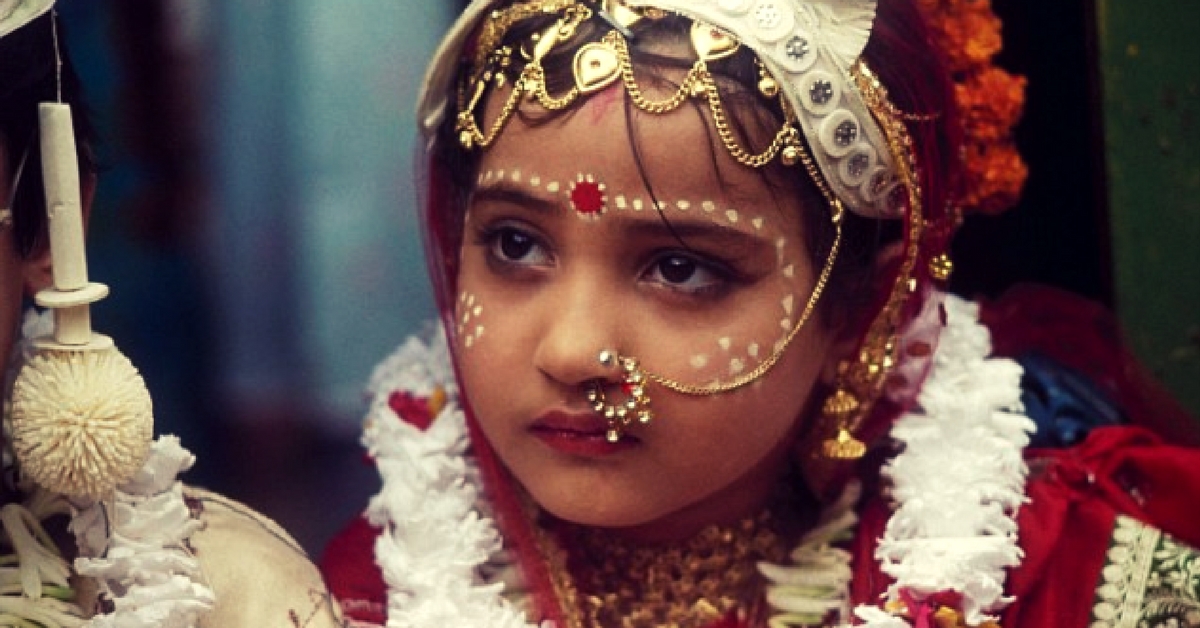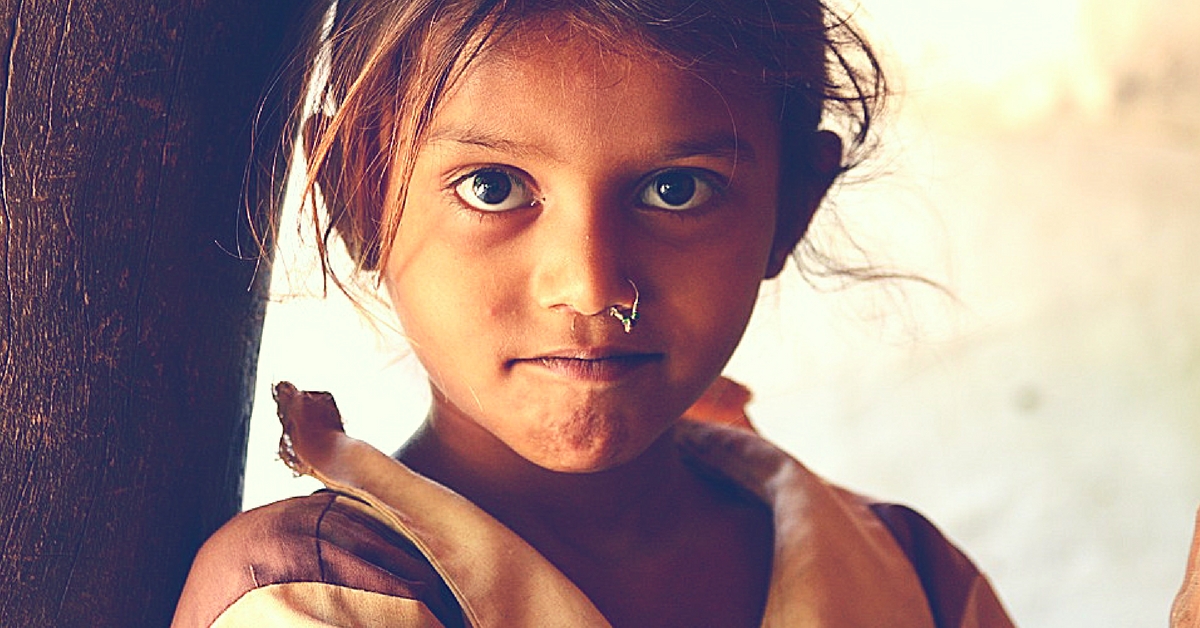India Has the Highest Number of Child Brides in the World: How Do We Deal With It
Recent incident of mass child marriage ceremonies in Madhya Pradesh attended by political leaders has once again brought the issue to the forefront.

Earlier this year, UNICEF had released a report stating that the number of girls getting married in India had halved. Despite this drop, nearly 1.5 million girls in India get married before they turn 18. Child marriage remains a social evil that India has seemingly had a hard time eradicating.
The legal age of marriage in India is 18 for women and 21 for men. Last year the Supreme Court ruled that sex with an underage wife constituted rape.
Despite all the recent conversation about protecting our young girls following the horrific gangrape and murder of an eight-year-old in Kathua, certain influential politicians and lawmakers in Madhya Pradesh continue to condone and support such the pernicious practice of child marriage.
According to a recent report by the Dainik Bhaskar Post, hundreds of young girls were married off across mass wedding ceremonies in the Rajgarh district of Madhya Pradesh, on the occasion of Akshay Tritiya, an annual springtime festival celebrated by Hindus and Jains.
At one mass wedding ceremony in the Biaora Kalan village, approximately 69 couples, largely within the age bracket of 12-16, got married.
What was even more shocking was the presence of leaders from both the ruling and opposition parties at these mass wedding ceremonies. These leaders reportedly even blessed the couples. The district administration estimates that nearly 1000 minor couples were married off on Wednesday.

Making matter worse, no calls to report and prevent child marriages were made to the helpline number issued by the State women and child development department in the district. Local police and administrators assert that even if they stop a marriage, the parents often take the children away to another place and marry them off. The practice reportedly has the patronage of influential politicians in the district.
The idea of lawmakers or potential legislators supporting such a brazen violation of the law and go against a child’s interests is shocking.
Going by the National Family Health Survey-4 statistics, nearly half the women between 20-24 years of age get married before the age of 18 (age of consent) in Rajgarh district. More than 60% of the men between 25 and 29 years of age get married before the age of 21, while nearly 7% of women between 15-19 become mothers or get pregnant.
Even with these statistics in the public domain, the administration seems helpless in dealing with the situation on the ground.
Good news, however, came from Bhopal where the local police prevented three child marriages thanks to the helpline set up by the State government. However faint, this is still a silver lining.
“When a girl is forced to marry as a child, she faces immediate and lifelong consequences. Her odds of finishing school decrease while her odds of being abused by her husband and suffering complications during pregnancy increase. There are also huge societal consequences and a higher risk of intergenerational cycles of poverty,” said Anju Malhotra, UNICEF’s Principal Gender Advisor, in a statement released by the agency last month. Child marriages have also been a major driver in increasing the frequency of HIV/AIDS, delicate pregnancies, and other such health implications.
Under the Prohibition of Child Marriage Act (PCMA), 2006, the marriage between a man above 18 years of age with a woman below 18 years of age, is punishable with imprisonment of two years, a fine of up to Rs 1,00,000, or both. Read more about PCMA here.

If the male is an adult and the bride is a minor; the former can be prosecuted. Parents or guardians encouraging, organising, abetting, forcing, conducting and even attending these wedding ceremonies are liable for prosecution and punishment under both PCMA and the Protection of Children from Sexual Offences (POSCO) Act. However, it is important to note that if the State government goes by the letter of the law, it must prosecute those politicians who attended these mass wedding ceremonies.
Although child marriage is a non-bailable offence, the act recognised it as “voidable”, but valid. Despite the enactment of the PCMA, this practice is not automatically void under India’s civil laws. Under the current provisions of PCMA, the onus is on the child bride to declare her marriage null and void within two years of attaining majority (20 years of age). If she does not approach the courts and issue her declaration by then, the marriage stands. Considering the social structure within which these minors exist, it is impractical to expect them to go against their parents.
Karnataka, however, addressed this lacuna by inserting a provision in the Act for the state, which declared that every child marriage, whether solemnised before or after the commencement of this new provision of the law, will be treated invalid from the very outset. The apex court lauded the Karnataka government for taking such a step and asked other states to follow suit.
Read more about what Karnataka did here.
Access to better education for young girls, greater impetus on spreading awareness against the debilitating effects of child marriage by government agencies, and extensive work on the ground by local non-profits have worked wonders.

However, a lot more work is required, particularly when it comes to the question of annulment of these marriages. Although states like Karnataka have addressed the problem legally, what they haven’t quite manage to achieve is ensure the safety of the girl child in such situations.
Having said that, the example of a “collaborative policing” strategy initiated by Rema Rajeshwari, the former Superintendent of the Police of Mahabubnagar District in Telangana, under the Balyaniki Raksha initiative (started in June 2016) offers a potential model for tackling child marriage.
“Collaborative policing is nothing but taking the help of all the concerned departments. Most of the time, the first distress call is received by the local sub-inspector. Because we receive such information, we have made it a point to train our SHOs to be more sensitive to this issue. However, police alone cannot stop the child marriages. So, what we did is integrate the services,” Rema told The News Minute.

In addition to holding a series of meetings and awareness sessions about not just child marriage, but any sort of abuse they suffer, with the various state departments working on the ground, the local police also conducted community outreach programs attended by over 2400 priests, pastors, and maulanas. At these sessions, these local religious figures were told that they would go to jail and suffer other legal consequences for conducting these wedding ceremonies.
Such awareness programs resulted in a significant number of calls coming into the local police stations about potential child marriage ceremonies, and reduced the number of child marriages by nearly 65% over a span of two years, reports The News Minute.
There is hope, but our lawmakers need to take greater responsibility.
Like this story? Or have something to share? Write to us: [email protected], or connect with us on Facebook and Twitter.
NEW: Click here to get positive news on WhatsApp!
If you found our stories insightful, informative, or even just enjoyable, we invite you to consider making a voluntary payment to support the work we do at The Better India. Your contribution helps us continue producing quality content that educates, inspires, and drives positive change.
Choose one of the payment options below for your contribution-
By paying for the stories you value, you directly contribute to sustaining our efforts focused on making a difference in the world. Together, let’s ensure that impactful stories continue to be told and shared, enriching lives and communities alike.
Thank you for your support. Here are some frequently asked questions you might find helpful to know why you are contributing?


This story made me
-
97
-
121
-
89
-
167











